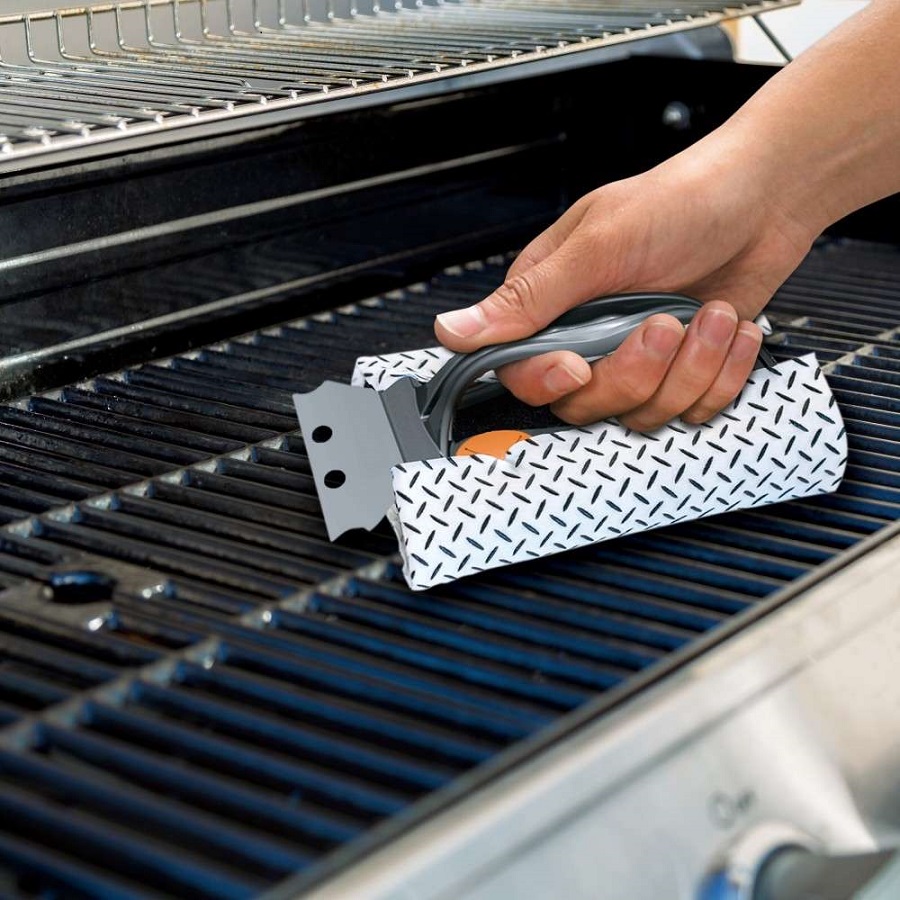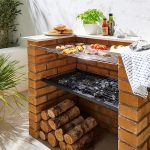Introduction
Cleaning your BBQ grill is an essential maintenance task that not only ensures a healthier cooking surface but also prolongs the life of your grill. Regular cleaning prevents the buildup of grease and grime that can affect the flavor of your food and pose safety hazards. Below is a detailed guide on how to clean your BBQ grill efficiently, including tools, methods, and maintenance tips to keep your grilling experience enjoyable.
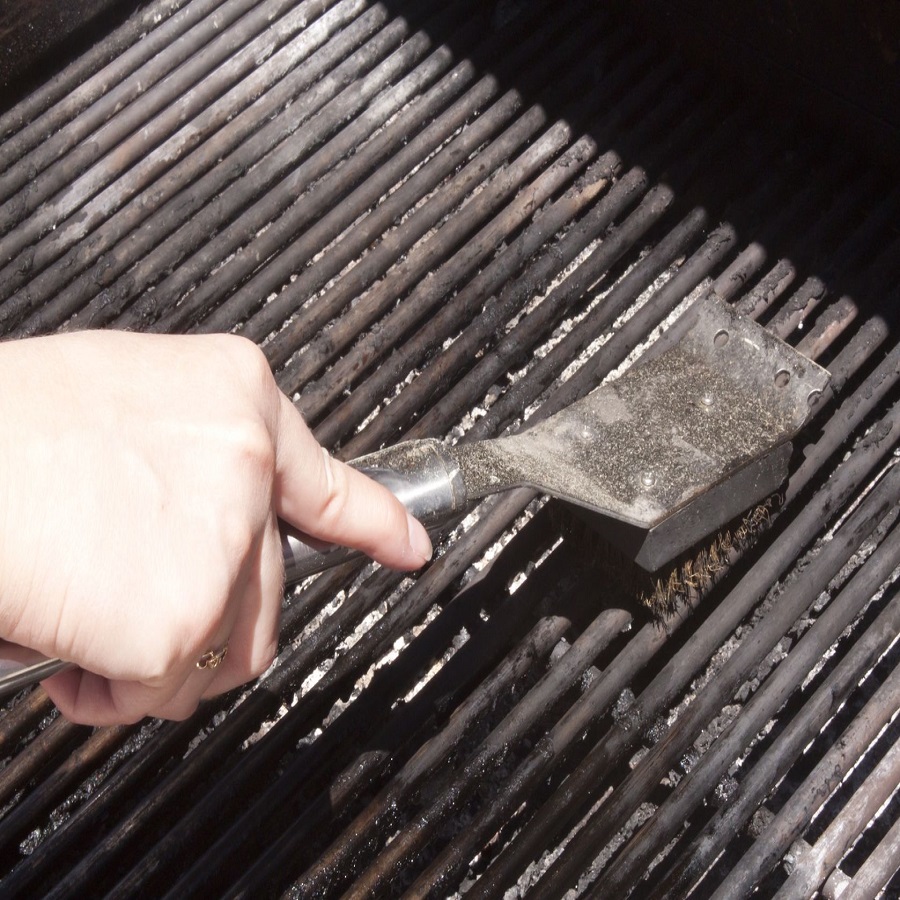
Gather Your Cleaning Materials
Clean bbq grill – Before you start to clean your BBQ grill, it’s essential to gather the right cleaning materials. Having the proper tools and agents at hand will not only make the cleaning process more efficient but also protect your grill from potential damage caused by inappropriate cleaning methods.
Choosing the Right Cleaning Tools
Picking the correct tools is vital for effectively cleaning your BBQ grill. Here are some must-haves:
- A sturdy grill brush: This will be your main tool.
- Scouring pads: Helpful for tough spots that need extra scrubbing.
- Stainless steel wire brushes: Great for stainless steel grates.
- Nylon or soft bristle brushes: These are safe for porcelain-coated grates.
- Putty knife or scraper: To remove burnt-on food debris and grease.
Prefer tools with long handles to keep your hands away from the heat and grime.
Safe Cleaning Agents for BBQ Grills
Your choice of cleaning agent is just as important as the tools you use. Here are recommended cleaning agents that are effective and safe for most grill types:
- Mild dish soap: Mix with water for a gentle clean.
- Baking soda: Ideal for a non-toxic scrub.
- White vinegar: Mix with water for a natural disinfectant.
- Lemon juice: Breaks down grease and shines surfaces.
Remember to avoid harsh chemicals that can corrode your grill or leave unsafe residues. Aim for a balance between effectiveness and safety when it comes to choosing your cleaning agents.
Pre-Cleaning Preparation
Before cleaning your BBQ grill, take some important prep steps. These ensure a safe and effective cleaning experience.
Disconnecting and Dismantling Components
First, make sure your grill is off and cools down. Disconnect the gas or propane tank carefully. This prevents accidents. Next, remove grill grates and other detachable parts. Dismantling allows for easier, thorough cleaning of each piece.
Safety Measures Before Cleaning
Prioritize your safety. Wear gloves to protect hands from grease and grime. If you use a cleaning agent, wear safety glasses to shield your eyes. Keep your workspace well-ventilated, especially if using cleaning sprays. Avoid flames or sparks around the grill during this process. Finally, keep all cleaning materials and disconnected components organized to avoid mishaps.
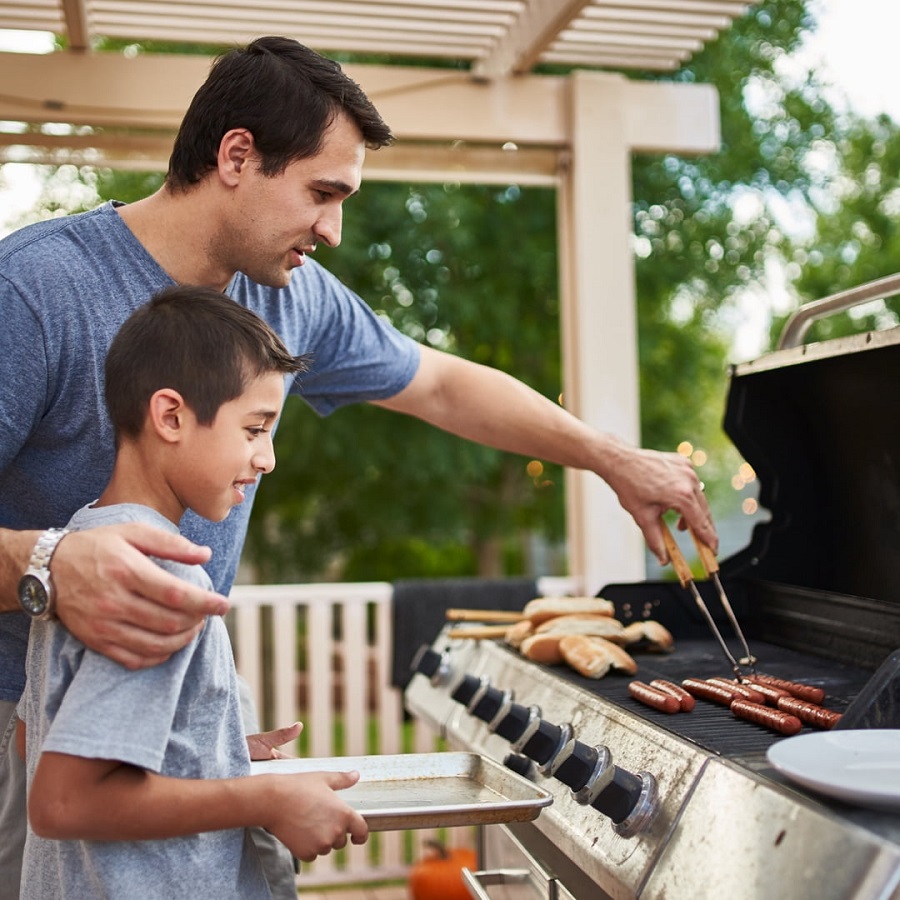 Cleaning the Grill Grates
Cleaning the Grill Grates
To get a pristine BBQ grill, focus on the grates – the heart of your grill. Regular cleaning after each use prevents buildup and ensures your food tastes great.
Scrubbing Techniques for Various Grate Types
Each grate material needs a specific approach. Here are some effective techniques:
- Cast Iron Grates: Use a stiff brush to scrub these grates. A firm brush removes debris without damaging the surface. Oil the grates after each clean to maintain them.
- Stainless Steel Grates: Soft bristle brushes work best here. They clean without scratching. Remember to rub in the direction of the grain.
- Porcelain-Coated Grates: These require a gentle touch. Use a nylon brush to avoid chipping the coating. Avoid metal tools that may scrape off the porcelain.
Always preheat the grill before cleaning. This softens the residue, making it easier to scrub off.
Natural Solutions for Stubborn Grime
For tough spots, natural cleaners can be very effective, such as:
- Baking Soda Paste: Apply a paste made of baking soda and water. Let it sit, then scrub.
- Vinegar Spray: Mix equal parts white vinegar and water in a spray bottle. It cuts through grease.
- Lemon Juice: Its acidity breaks down tough grime. Rub a lemon half on the grates.
- Onion: A heated grill and a half-onion can clean grates. The onion’s enzymes help clean.
By integrating these techniques and natural solutions, your grates will not only look clean but will be safe for cooking without harsh chemicals. After cleaning, ensure you rinse the grates thoroughly with water to remove any cleaning residue.
Deep Cleaning the Burners and Hood
Deep cleaning the burners and hood of your BBQ grill is crucial for its maintenance and performance. Over time, grease, food particles, and debris can accumulate, which may affect the efficiency of your grill. Regular cleaning not only enhances functionality but also prolongs the lifespan of your grill components.
Steps to Effectively Clean the Burners
- Turn off the gas supply: Ensure safety by disconnecting the fuel source.
- Remove the burners: Carefully dismantle the burners from the grill.
- Soak in soapy water: Let them soak in a mixture of warm water and mild dish soap.
- Scrub off debris: Use a soft brush or sponge to clean away any residue.
- Rinse thoroughly: After scrubbing, rinse the burners with clean water.
- Dry completely: Make sure the burners are dry before reassembling them.
Tips on Removing Grease from the Grill Hood
- Use a degreaser: Apply a non-toxic degreaser or a mixture of vinegar and water.
- Scrub gently: Use a non-abrasive sponge to avoid scratching the surface.
- Wipe down regularly: Regular maintenance can prevent the buildup of tough grease stains.
- Rinse with warm water: This helps remove any remaining degreaser and loosened grease.
By following these steps, you can ensure that your BBQ grill’s burners and hood are not only clean but also functioning optimally for your next barbecue session.
Handling Rust and Wear
Rust can significantly shorten the life of your BBQ grill. However, you can take steps to minimize the risk of rusting and handle any wear that does occur. Regular maintenance is key to preserving both the appearance and functionality of your grill.
Preventive Measures to Avoid Rusting
To prevent rust, you need to keep your grill dry and properly covered:
- Keep it covered: Use a grill cover to protect it from rain and moisture.
- Clean after use: Remove food particles and grease that can hold moisture.
- Dry thoroughly: After cleaning, ensure no water remains on the grill.
- Oil the grates: A thin coat of cooking oil on the grates can prevent rust.
These steps help maintain the grill and ward off the damaging effects of rust and wear.
Techniques to Restore Rusty Areas
If rust does appear, tackle it early:
- Scrub with a wire brush: Remove as much rust as possible from affected areas.
- Sand the area: For deeper rust, use sandpaper to get down to the base metal.
- Clean and dry: Wipe the area clean and ensure it is completely dry.
- Apply high-heat paint: Use paint made for grills to protect the exposed metal.
Repairing rusty parts promptly ensures your BBQ grill remains safe and functional for cooking. By following these restoration techniques, you can extend the life of your grill and enjoy many more seasons of barbecuing.
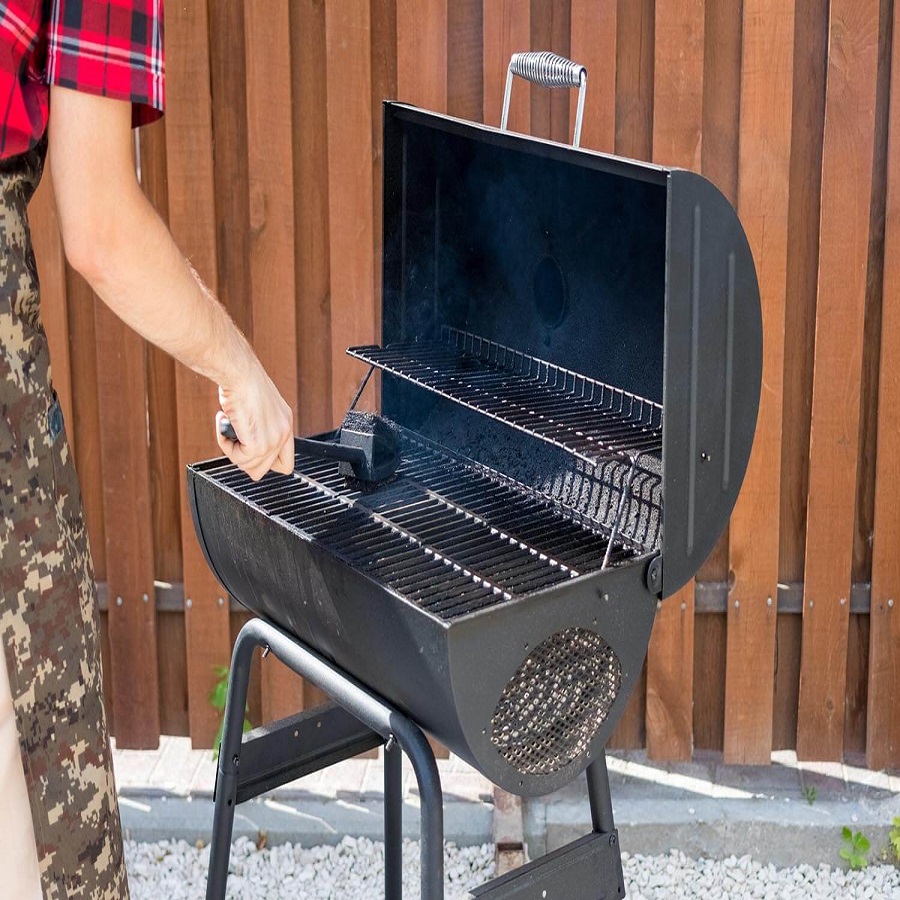 Final Touches and Maintenance
Final Touches and Maintenance
After thoroughly cleaning your BBQ grill, it’s vital to perform final touches and maintenance to ensure it’s ready for your next grilling session. Taking these extra steps can prevent future issues and extend the life of your grill.
Proper Rinsing and Drying Methods
Once you’ve finished removing debris and residues using various cleaning techniques mentioned above, follow these simple rinsing and drying steps:
- Rinse with clean water: Gently spray or spread clean water over all cleaned parts to remove any cleaning agent residues.
- Use a soft towel to dry: Pat down the surfaces with a soft, absorbent towel to prevent water spots.
- Air dry: Allow the grill to air dry further in an open, sunny spot to ensure no moisture is left.
Seasoning the Grill for Longevity
Seasoning your grill is as crucial as cleaning it. A well-seasoned grill has a protective barrier that can prevent rust and make it non-stick. Here’s how to season it properly:
- Heat the grill: Preheat your clean, dry grill to open up the pores of the metal.
- Apply oil: Use a high-smoke point oil like canola or grapeseed oil. Apply a thin, even layer using a brush or spray.
- Allow it to bake: Close the lid and let the grill run for about 15-20 minutes. This will ‘bake’ the oil into the surface.
- Let it cool: Turn off the grill and let it cool completely. Now, it’s seasoned and more resistant to rust.
By diligently integrating these rinsing, drying, and seasoning methods into your BBQ maintenance routine, you ensure your grill operates at its best and lasts many years.
Eco-Friendly Cleaning Practices
Adopting eco-friendly cleaning practices is great for both your BBQ grill and the environment. Using natural, non-toxic cleaners reduces harmful chemical runoff. These methods favor a more sustainable cleaning approach.
Homemade Cleaners and their Benefits
You can create effective homemade cleaners using ingredients in your kitchen. Here are a few benefits:
- Cost-effective: Making cleaners at home is often less expensive than buying commercial products.
- Non-toxic: These cleaners are safer for your health and the environment.
- Easily available: Most ingredients are common household items.
Examples include:
- Vinegar and water solution: Great for cutting grease.
- Baking soda paste: Effective in removing tough grime.
- Lemon juice: Ideal for adding shine and breaking down buildup.
Using these cleaners ensures that your BBQ grill is not only clean but also maintained without harsh chemicals.
Impact of Sustainable Cleaning on Grill Performance – Clean bbq grill
Cleaning your grill with eco-friendly methods has a significant positive impact. Here are some performance benefits:
- Prevents chemical buildup: Natural cleaners do not leave residue that could affect taste.
- Prolongs grill life: Gentle, non-corrosive cleaners prevent damage.
- Improves efficiency: A clean grill performs better overall.
By integrating these eco-friendly practices, you’re ensuring optimal grill functionality and supporting environmental sustainability. Clean your BBQ grill the green way to enhance performance and minimize your ecological footprint.
Conclusion
Cleaning your BBQ grill doesn’t have to be a daunting task. With the right tools and techniques, it’s possible to maintain a clean and safe cooking environment that enhances your grilling experience. By incorporating regular maintenance into your routine, you’ll ensure that every grilling session is delightful and flavorful while prolonging the life of your investment. Whether you’re cooking up a backyard feast or enjoying a quiet dinner outdoors, a clean grill is truly the foundation of a successful BBQ. Happy grilling!
